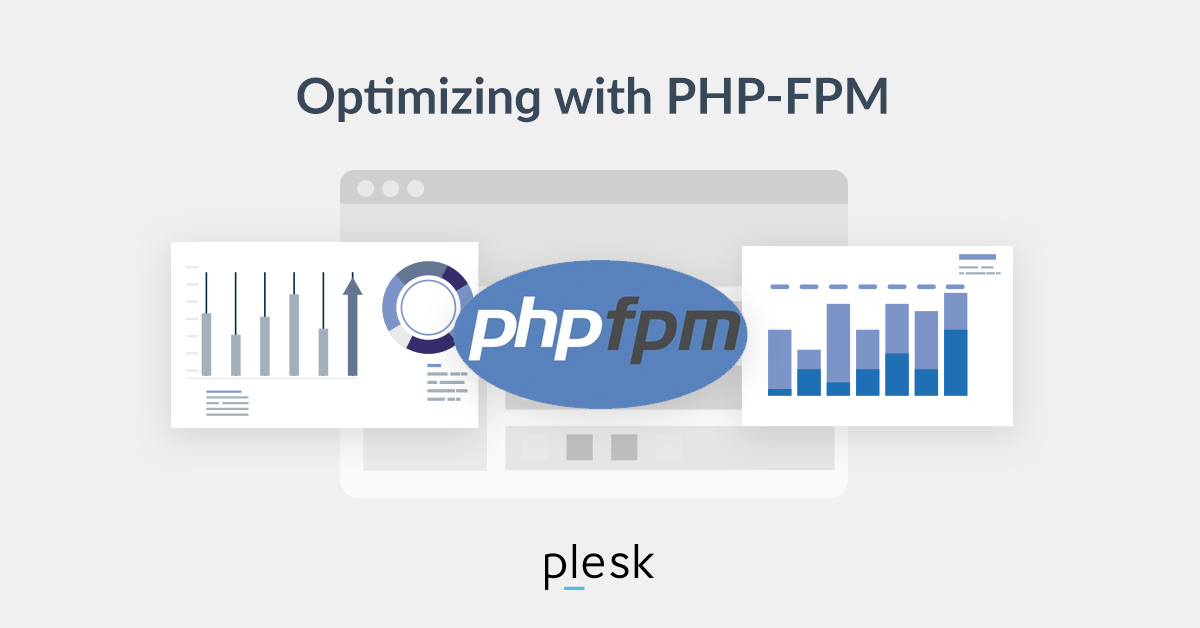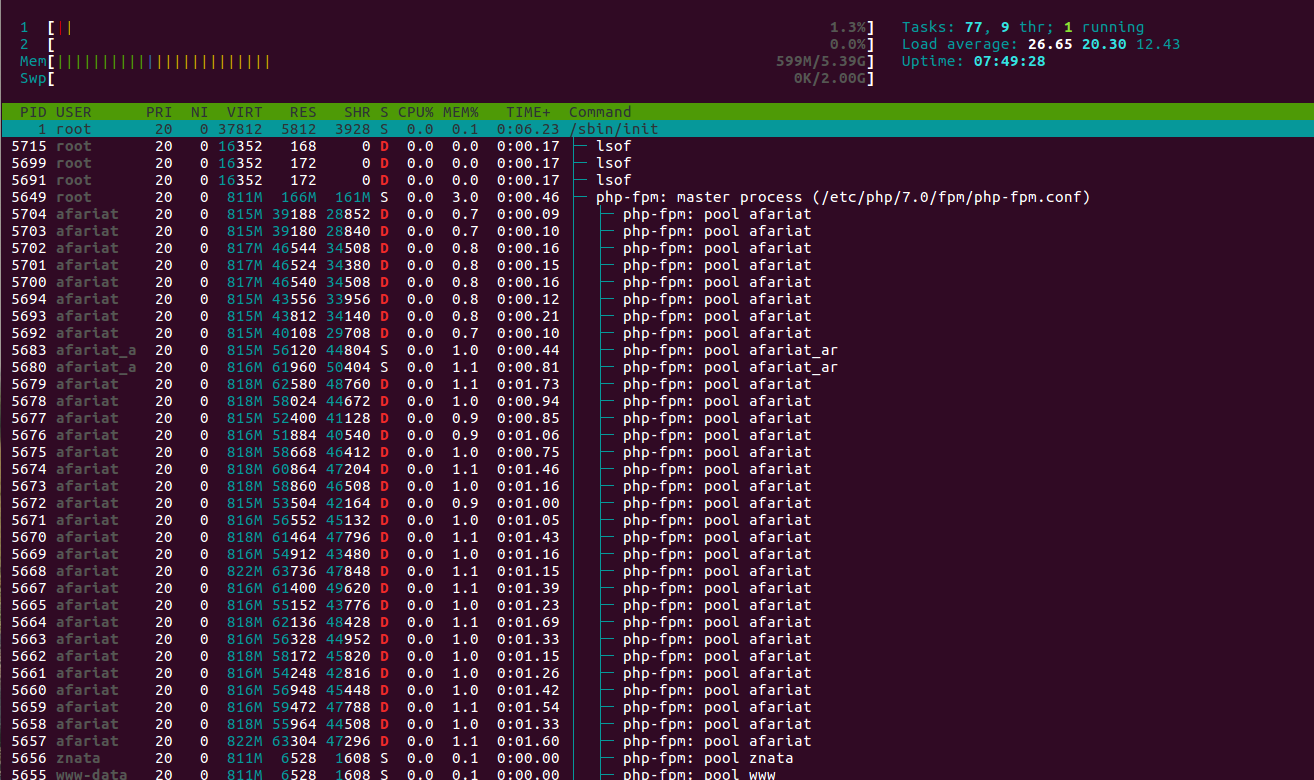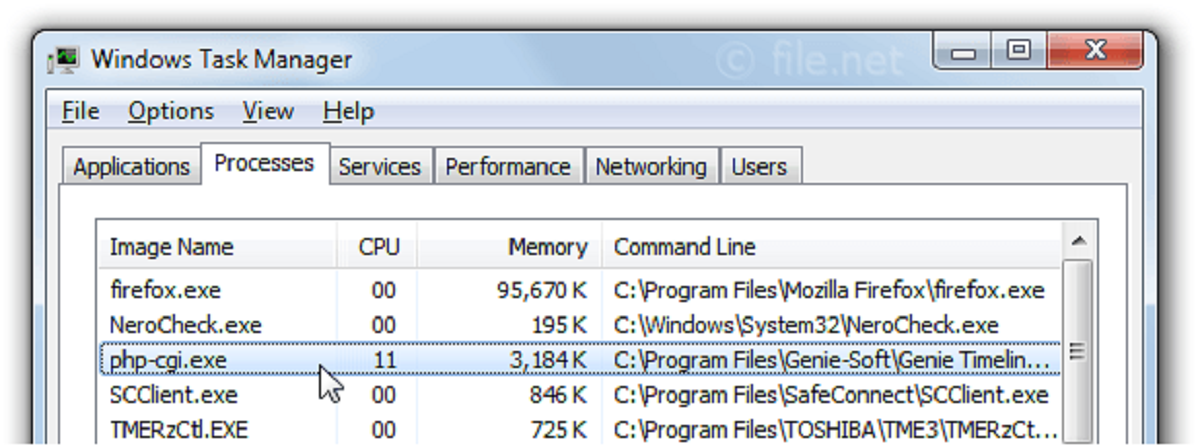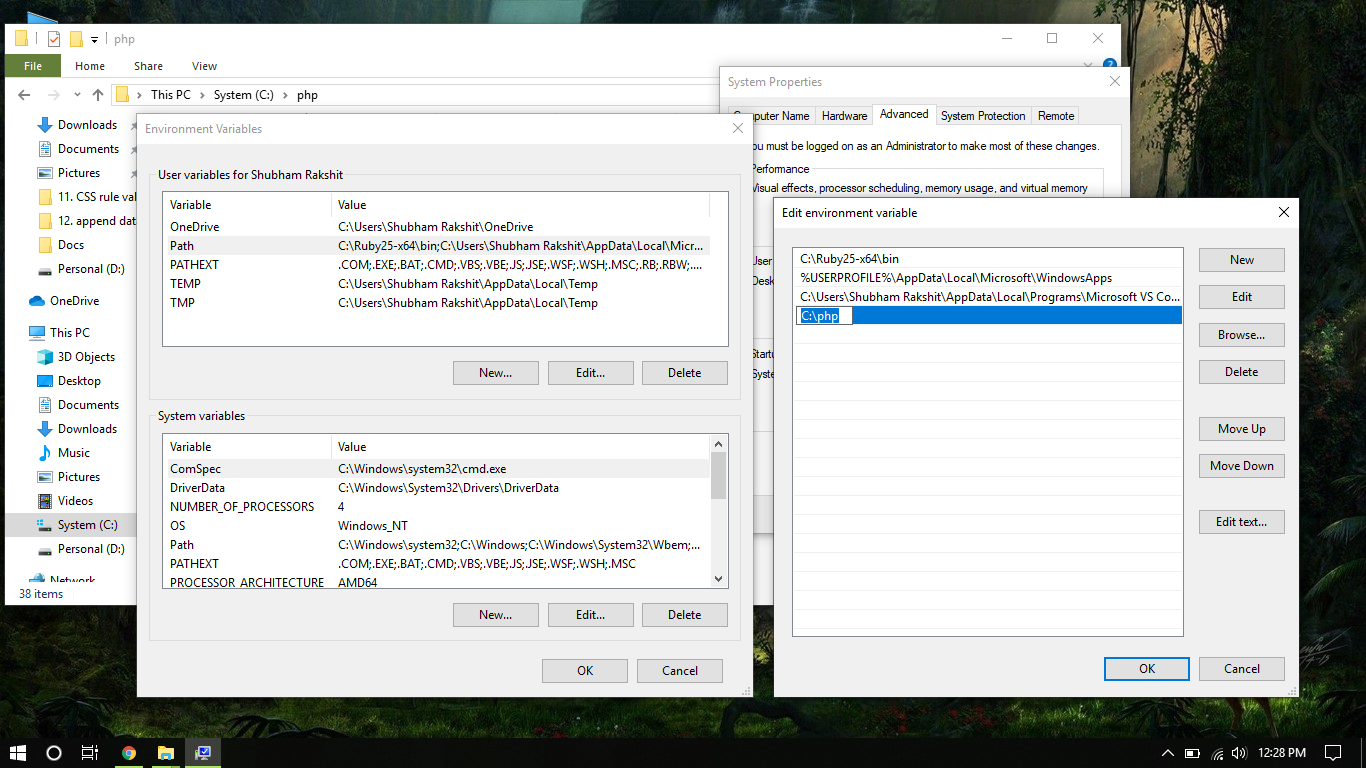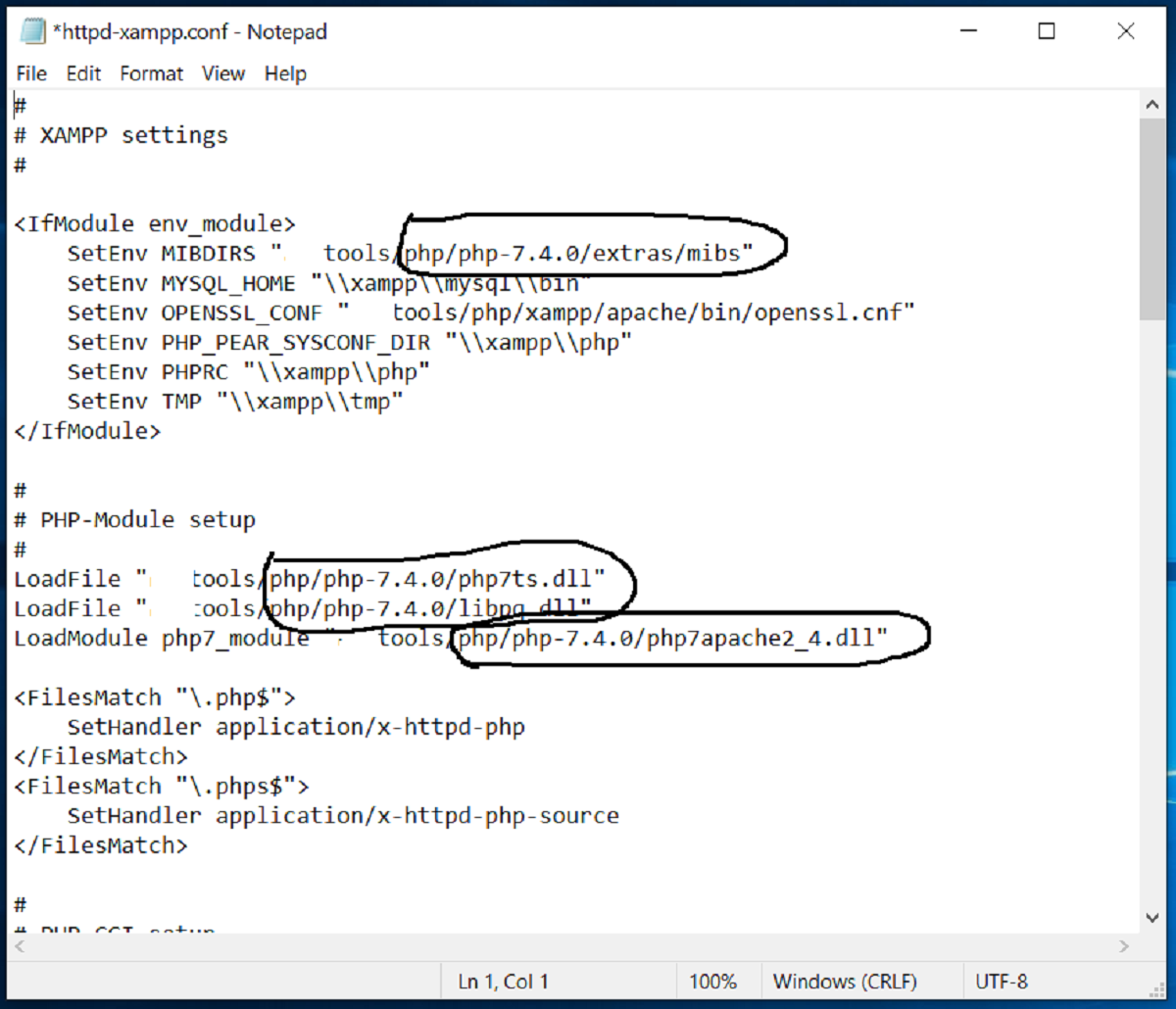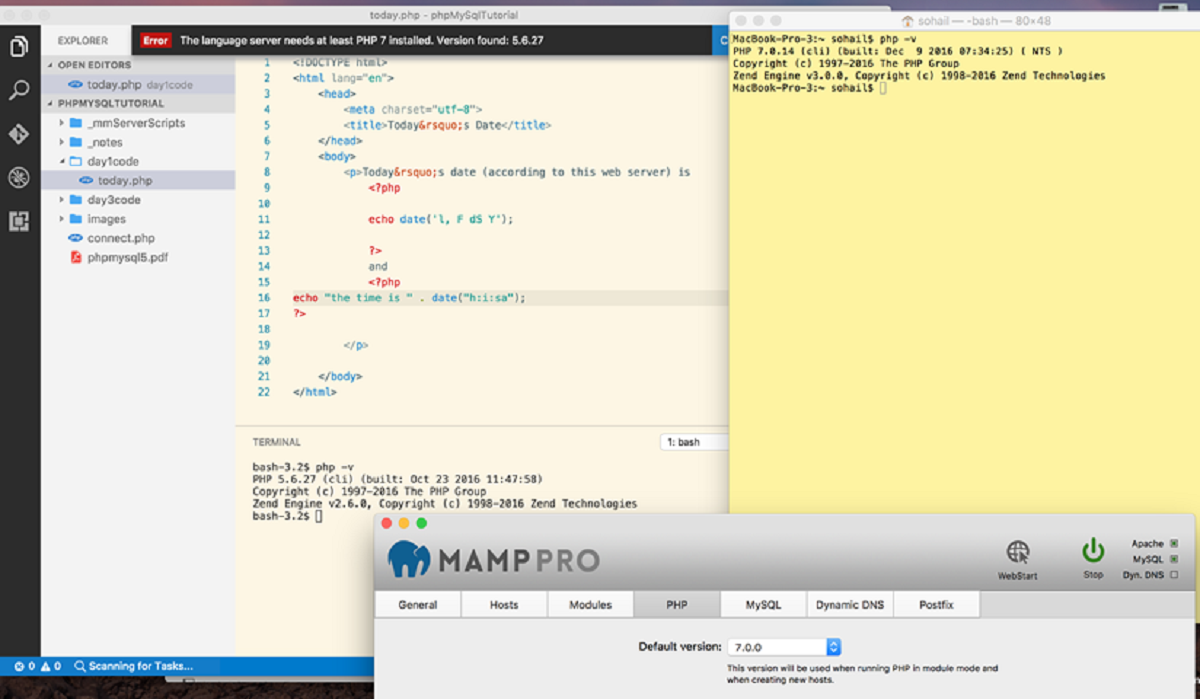Introduction
A PHP worker is an essential element in server architecture that is primarily used for executing PHP scripts and handling requests from clients. When a client sends a request to a server running PHP, the PHP worker processes the request, executes the necessary PHP code, and generates a response that is sent back to the client.
PHP workers play a crucial role in the performance and scalability of web applications. They enable the efficient handling of multiple requests simultaneously, ensuring faster response times and a smoother user experience. By utilizing PHP workers, developers can create robust and dynamic websites and web applications that can handle high levels of traffic and complex processes.
PHP workers are particularly popular in the context of server-side programming, where server resources are allocated to handle incoming requests. Unlike traditional static HTML pages, PHP workers enable the generation of dynamic content by executing PHP scripts in real-time. This flexibility allows developers to create interactive and personalized web applications that can provide dynamic data and respond to user inputs.
In this article, we will explore the concept of PHP workers in more detail. We will delve into their role, functionality, benefits, and common use cases. Additionally, we will compare PHP workers with other technologies to provide a well-rounded understanding of their significance in web development. By the end of this article, you will have a comprehensive understanding of PHP workers and how they enhance the performance and functionality of web applications.
Definition of PHP Worker
A PHP worker can be defined as a component of a server architecture that is responsible for executing PHP scripts and handling client requests. It is essentially a process or thread that runs in the background, continuously listening for incoming requests and processing them accordingly.
When a client sends a request to a server running PHP, the PHP worker is responsible for parsing the request, executing the necessary PHP code, and generating an appropriate response. It acts as a bridge between the server and the client, facilitating the dynamic generation of content and the interaction between the two.
PHP workers are designed to handle multiple requests concurrently, ensuring optimal performance and responsiveness. They utilize server resources efficiently, allowing for the simultaneous execution of multiple PHP scripts. This concurrent processing capability is particularly beneficial in scenarios where high traffic volumes or complex computations are involved.
PHP workers operate within a server environment, such as the Apache HTTP server or the NGINX web server. They are typically configured to manage a specific number of concurrent requests, ensuring that the server does not become overloaded. By managing the processing of requests effectively, PHP workers contribute to the overall stability and scalability of web applications.
Furthermore, PHP workers can also handle session management, caching, and database connections, providing additional functionalities to enhance the performance and functionality of web applications.
In summary, a PHP worker is a vital component of server architecture that allows for the execution of PHP scripts and the handling of client requests. It plays a crucial role in processing requests efficiently, enabling the generation of dynamic content, and facilitating the interaction between the server and the client.
How Does a PHP Worker Work?
A PHP worker operates based on the principles of the worker pool model, where a pool of workers is created to handle incoming requests. When a client sends a request to the server, it is received by the web server, such as Apache or NGINX, which then forwards the request to one of the available PHP workers in the pool.
Upon receiving a request, the PHP worker first parses the request to extract relevant information, such as the requested URL, request method, and any submitted data. It then looks for the corresponding PHP script associated with the requested URL and executes it.
During the script execution, the PHP worker interprets the PHP code, executes the instructions, and generates the resulting output. This output could be HTML content, JSON data, or any other format depending on the purpose of the script and the requirements of the client.
PHP workers handle each request independently, ensuring that multiple requests can be processed simultaneously without interfering with each other. This concurrency is achieved through the use of separate process or thread instances for each request. By separating the handling of requests, PHP workers avoid any potential bottlenecks and contribute to the overall scalability and responsiveness of the server.
Additionally, PHP workers can take advantage of various performance optimization techniques, such as caching, to further enhance their efficiency. By caching the results of frequently accessed or computationally intensive operations, PHP workers can reduce the processing time for subsequent requests, resulting in faster response times and improved performance.
Once the PHP worker completes the processing of a request, it sends the generated response back to the web server. The web server, in turn, delivers the response to the client, allowing the requested content to be displayed in the client’s browser.
In summary, PHP workers operate within a worker pool model to handle incoming client requests. They parse the requests, execute the associated PHP scripts, generate the output, and return the response to the web server for delivery to the client. By handling requests concurrently and employing performance optimization techniques, PHP workers ensure efficient processing and contribute to the overall performance of web applications.
Benefits of Using PHP Workers
Utilizing PHP workers in web development offers several advantages that contribute to the performance, scalability, and functionality of web applications. Here are some key benefits of using PHP workers:
1. Concurrency: PHP workers allow for concurrent processing of multiple client requests. This means that multiple requests can be handled simultaneously, leading to faster response times and improved user experience. With PHP workers, web applications can efficiently handle high traffic volumes without becoming overwhelmed.
2. Scalability: PHP workers facilitate the scalability of web applications. By distributing the workload among multiple workers, they ensure efficient utilization of server resources and accommodate an increasing number of concurrent requests. This scalability is essential for handling growth and spikes in traffic without sacrificing performance.
3. Real-time Dynamic Content: PHP workers enable the generation of dynamic content in real-time. They execute PHP scripts on the server, allowing for personalized and interactive web applications. This dynamic nature enhances user engagement and enables developers to create highly customized experiences for their audience.
4. Efficient Resource Utilization: PHP workers optimize the usage of server resources. By managing the execution of PHP scripts independently, they prevent any single request from monopolizing system resources and affecting the overall performance of the server. This efficient resource allocation allows for smooth and reliable operation of web applications.
5. Caching Mechanisms: PHP workers can leverage caching mechanisms to improve performance. By caching the results of frequently accessed computations or database queries, they reduce the processing time for subsequent requests. This caching behavior enhances the responsiveness of web applications and minimizes the load on the server.
6. Enhanced Security: PHP workers can provide additional layers of security for web applications. They handle request processing and data handling, enabling developers to implement various security measures, such as input validation and access controls, within the worker environment. This helps protect applications from potential security vulnerabilities.
In summary, PHP workers offer a range of benefits, including concurrency, scalability, real-time dynamic content generation, efficient resource utilization, caching mechanisms, and enhanced security. By harnessing these advantages, developers can build high-performance web applications that can handle large volumes of traffic and deliver dynamic and personalized experiences to users.
Common Use Cases of PHP Workers
PHP workers find application in various scenarios where the processing of client requests and the execution of PHP scripts are required. Here are some common use cases where PHP workers are commonly employed:
- Web Applications: PHP workers are extensively used in the development of web applications. They enable the execution of server-side PHP code, allowing for the creation of dynamic and interactive web pages. Whether it’s processing user inputs, fetching data from databases, or generating dynamic content, PHP workers play a crucial role in delivering a rich user experience.
- Content Management Systems (CMS): PHP workers are often utilized in CMS platforms, such as WordPress, Drupal, and Joomla. These systems rely on PHP workers to handle various tasks, including rendering templates, processing user interactions, and interacting with databases. PHP workers ensure the efficient functioning of CMS platforms, enabling website administrators to create, manage, and publish content effectively.
- E-commerce Websites: PHP workers are essential for e-commerce websites that require real-time processing and secure transactions. They handle tasks like processing customer orders, managing inventory, calculating prices, and integrating payment gateways. PHP workers ensure smooth and reliable transactions, delivering a seamless shopping experience to customers.
- API Development: PHP workers are frequently used in the development of APIs (Application Programming Interfaces) that provide data and functionality to other applications. PHP workers handle incoming API requests, process data, and generate responses in standardized formats such as JSON or XML. This enables seamless integration between different applications and supports the development of robust software ecosystems.
- Data Processing and Reporting: PHP workers are well-suited for data-intensive applications that involve complex calculations, data transformations, and reporting. They handle large datasets efficiently, performing computations, and generating reports in real-time. PHP workers are used in various sectors, including finance, analytics, and science, where data processing and reporting are essential.
These are just a few examples of the common use cases of PHP workers. The versatility of PHP workers allows them to be applied in diverse scenarios where server-side processing and dynamic content generation are required. By utilizing PHP workers, developers can create powerful and scalable applications that meet the specific needs of their projects.
Comparison of PHP Workers with other Technologies
PHP workers provide a reliable and efficient solution for handling server-side processing and executing PHP scripts. However, it’s worth comparing PHP workers with other technologies to understand their relative strengths and weaknesses. Let’s compare PHP workers with two popular alternatives: CGI (Common Gateway Interface) and Node.js.
1. PHP Workers vs. CGI: CGI is a standard protocol for executing server-side scripts and interacting with web servers. While PHP workers and CGI accomplish similar tasks, there are some notable differences:
- Efficiency: PHP workers are generally more efficient than CGI scripts. PHP workers run in a persistent process or thread, enabling faster script execution and reducing the overhead of spawning new processes for each request, which is common in CGI.
- Language Support: Although CGI supports multiple programming languages, PHP has built-in functionality and extensive libraries specifically tailored for web development, making it a popular choice for server-side scripting.
- Configuration and setup: Setting up PHP workers is generally easier compared to CGI. PHP is often pre-installed or readily available on many servers, streamlining the process of configuring PHP workers. In contrast, configuring and managing CGI scripts may require additional steps, depending on the server environment.
2. PHP Workers vs. Node.js: Node.js is a runtime environment that allows for server-side JavaScript execution. Let’s compare PHP workers with Node.js:
- Concurrency Model: Node.js operates on a single-threaded, event-driven model, allowing it to handle a high number of concurrent requests efficiently. PHP workers, on the other hand, rely on a worker pool model, which can also handle concurrent requests but may not scale as well as Node.js in terms of handling large volumes of connections simultaneously.
- Developer Familiarity: PHP has been widely used for web development for many years, resulting in a large community and extensive resources. This makes PHP a popular choice for developers who are already proficient in the language. Node.js, on the other hand, may require developers to learn JavaScript specifically for server-side programming.
- Performance and Scalability: Node.js is known for its excellent performance and scalability, especially for applications with high input/output (I/O) operations. It excels in handling real-time, event-driven applications. PHP workers are highly reliable and efficient for web application development but may require additional scaling mechanisms for handling large-scale applications with heavy I/O requirements.
Each technology has its strengths and is suited for different use cases. PHP workers are particularly well-suited for web development and applications where PHP is the primary language. CGI can be a viable option for executing server-side scripts, while Node.js is a powerful choice for applications requiring high scalability and real-time capabilities.
Ultimately, the choice between PHP workers, CGI, or Node.js depends on the specific requirements of your project, your familiarity with the technology, and the expected workload of your application.
Conclusion
In conclusion, PHP workers are integral components of server architecture that play a crucial role in processing client requests, executing PHP scripts, and generating dynamic content. They enable concurrency, scalability, and real-time content generation, making them essential for high-performance web applications.
By leveraging PHP workers, developers can efficiently handle multiple requests simultaneously, ensuring faster response times and a seamless user experience. The ability to process requests concurrently enables web applications to handle high traffic volumes without compromising performance.
PHP workers offer several benefits, including efficient resource utilization, caching mechanisms for improved performance, and enhanced security measures. They are commonly used in various scenarios, such as web applications, content management systems, e-commerce websites, API development, and data processing/reporting.
When compared to CGI, PHP workers provide higher efficiency, language-specific support, and easier configuration. On the other hand, in comparison to Node.js, PHP workers excel in developer familiarity and are well-suited for web development, while Node.js offers exceptional scalability and real-time capabilities.
In summary, PHP workers empower developers to create robust and scalable web applications by efficiently handling client requests, executing PHP code, and generating dynamic content. Their ability to handle concurrency, scalability, and real-time processing makes them invaluable tools in modern web development.
Whether you are building a small website or a complex web application, understanding the role and benefits of PHP workers is essential to maximize performance, enhance user experience, and ensure the success of your project.









